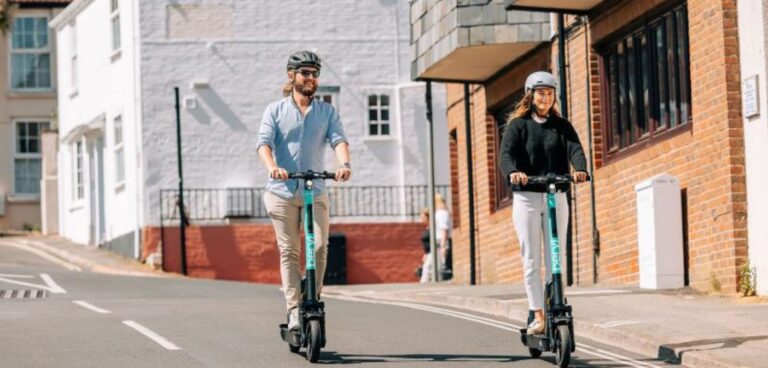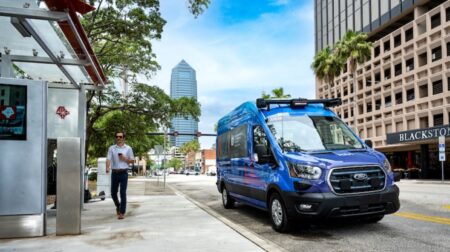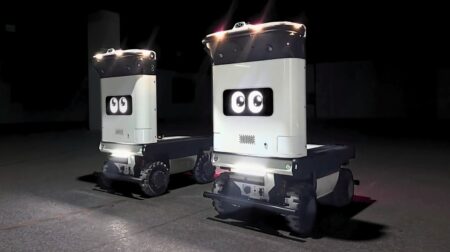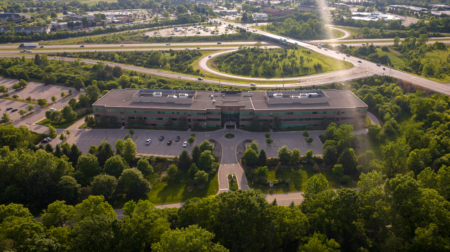Micromobility operator Beryl and IT and communications company Fujitsu have co-launched a project that will use tech called ‘Social Digital Twin’ to help increase vehicle availability by monitoring e-scooter usage.
Some of the anticipated benefits of the scheme include reduced operational costs and carbon emissions, plus increased vehicle availability.
The digital rehearsal technology combines behavioural economics models and artificial intelligence (AI) to produce simulations that reflect the behaviour of real-world riders.
What’s more, the simulations can also be used to replicate indirect factors such as weather, as opposed to just observed user behaviours.
According to Beryl, this enables them to more accurately predict the impact of initiatives and incentives on people’s transport choices, such as offering discounted fees for returning customers.
It will also be able to more accurately predict how changes to transportation will affect operating costs and contribute towards reducing Beryl’s overall carbon footprint.
Sacha Manson-Smith, CTO of Beryl, said: “We’re really excited to be working alongside an industry leader, using the latest simulation technology to help boost the efficiency of our schemes and significantly improve the user experience.
“Social Digital Twin will help Beryl to accurately predict how changes in human behaviour interact with evolving conditions in the environment, providing us with even higher levels of forecasting accuracy.
“We can use this extra knowledge to introduce scheme improvements that support our aim of encouraging as many people as possible to take up sustainable transport options. As a B-Corp registered company, we constantly monitor and evaluate our environmental impact and such accurate forecasting can also help us develop ways to further reduce it.”
Daiki Masumoto, research fellow and head of converging technologies laboratory at Fujitsu, said: “Fujitsu is committed to initiatives that build trust in society through innovation and our new ‘digital rehearsal’ technology is an example of how we can help better inform public policy and business planning.
“The trials on the Isle of Wight use digital rehearsal technology to test in advance the effects of people switching from cars to e-scooters. Our ultimate aim is to bring business benefits to Beryl, reduce the damaging environmental and social effects of car use, inform transport policy on the Isle and positively contribute to the Isle of Wight’s wider economy.
“In the future, Fujitsu plans to leverage the results of this project to support the sustainability transformation (SX) of mobility service providers and contribute to the realisation of a sustainable, fair, and diverse society through converging technologies that combine computer sciences with knowledge from the humanities and social sciences.”
This is part of a wider initiative, which Fujitsu is taking as a Lead Technical Partner for National Digital Twin Programme, which aims to develop digital twin technologies to unlock new benefits for society, the economy, business and the environment. It is receiving financial support from HM Treasury.
The first test simulations using the tech will operate on the Isle of Wight in May, which was chosen based on its geographical isolation. A more comprehensive programme is set to follow this summer.
The model will use statistical data, such as the population by area, and open data like weather data, data on movement of people between specific areas of the island, as well as e-scooter journeys from Beryl.
The scheme will be run in partnership with Isle of Wight Council, with the Beryl e-scooter scheme being one of a number of Department for Transport-approved trials currently running across the UK.








